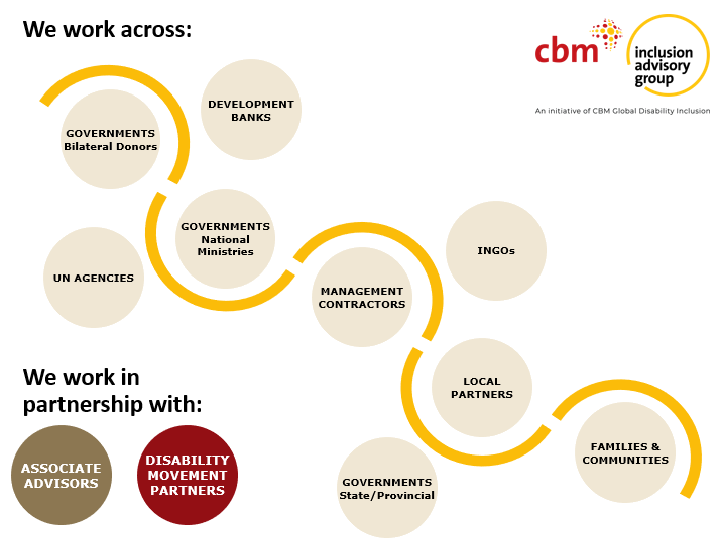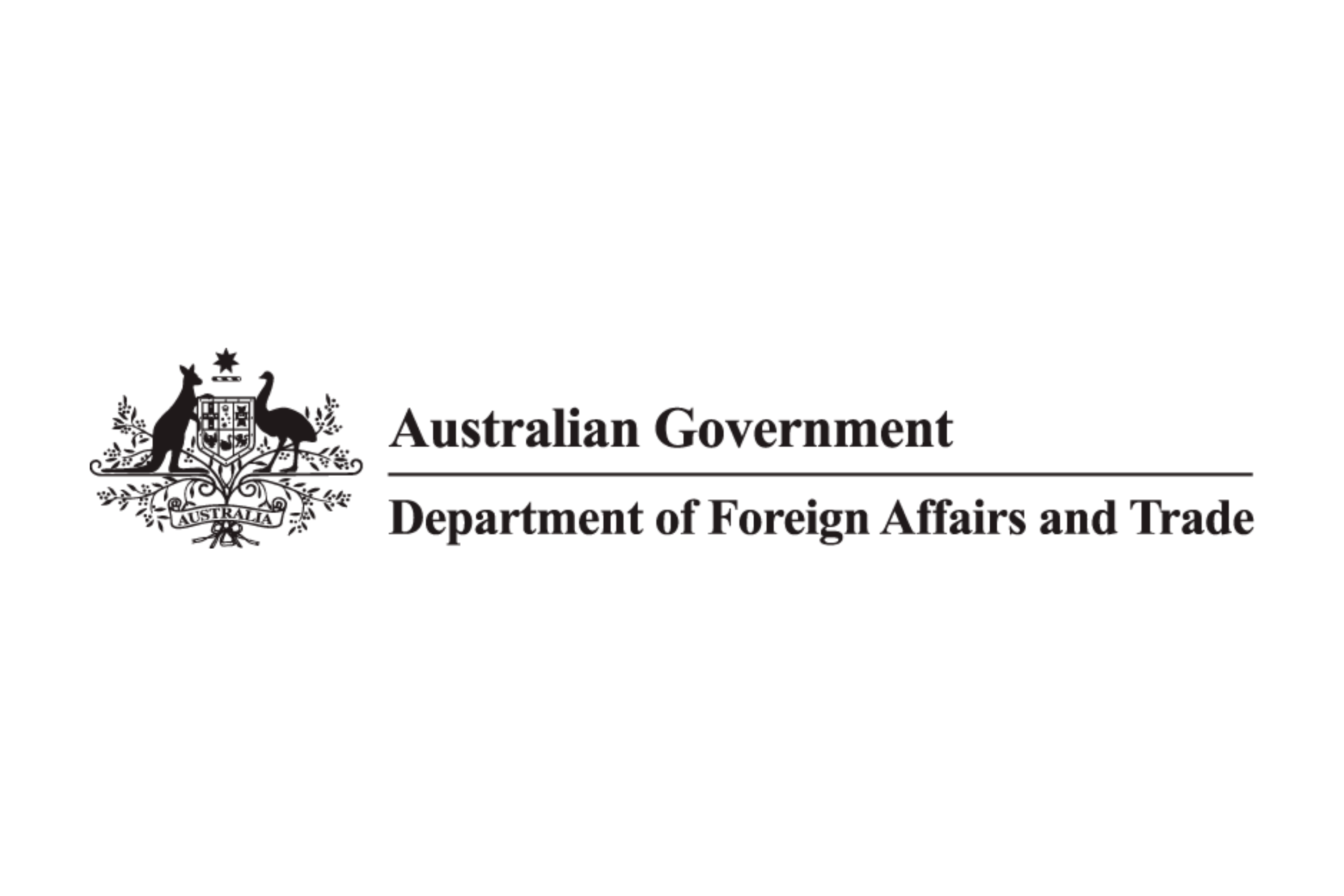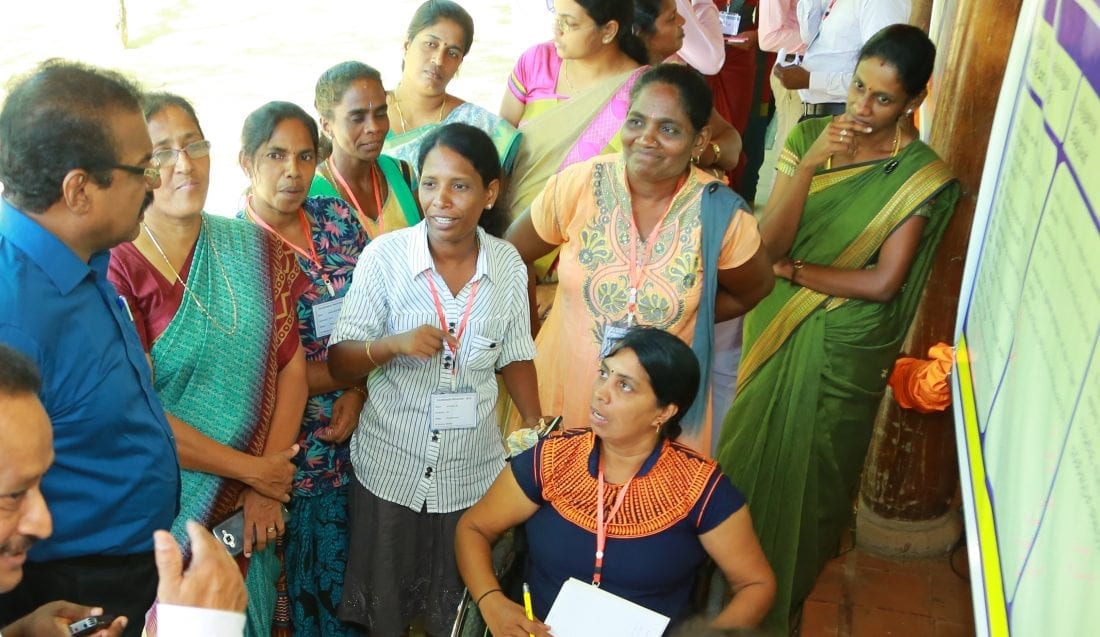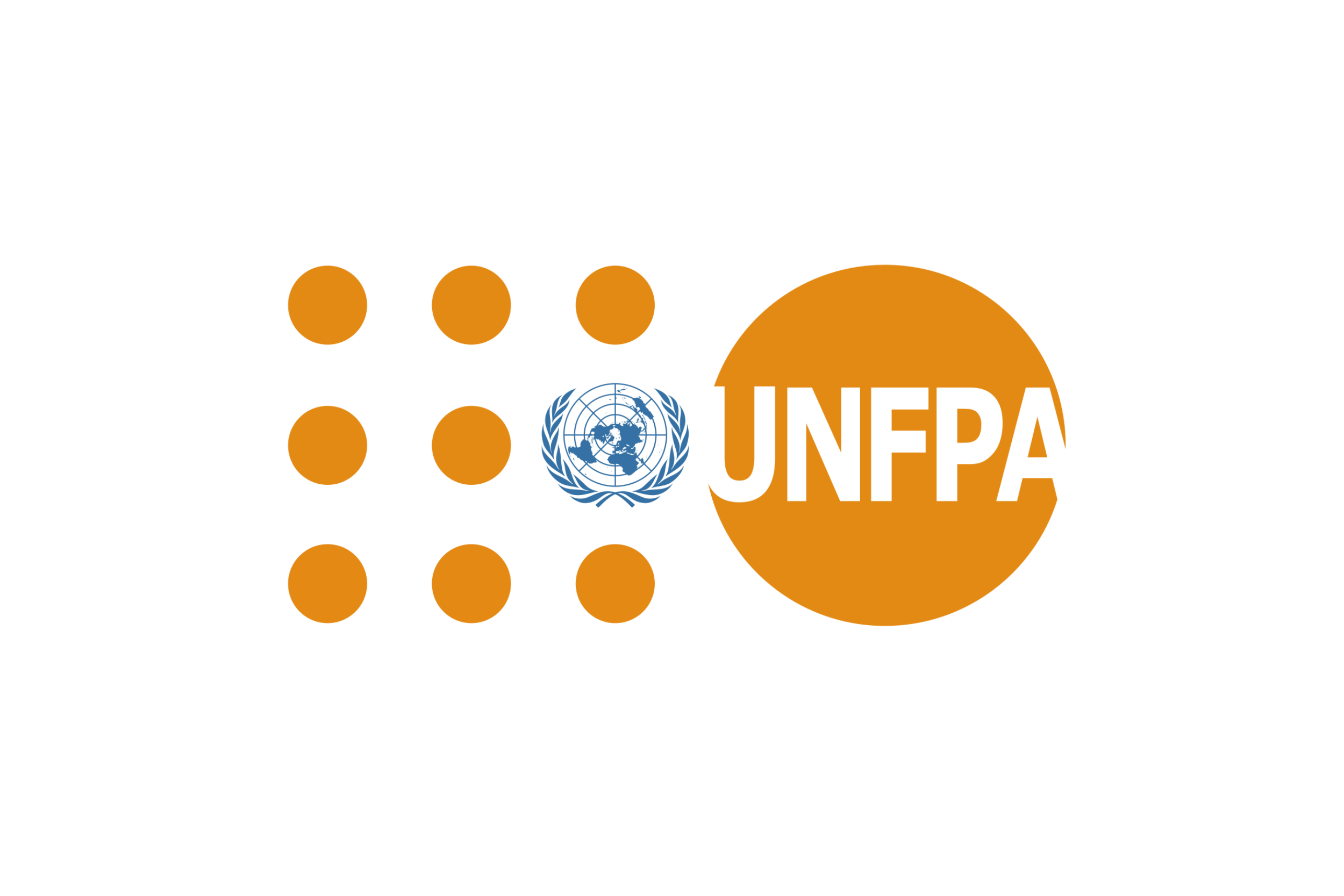We provide advice to governments, UN agencies, development banks, management contractors and international and local NGOs. We work in partnership with the disability movement, according to their local priorities. We often work in blended delivery teams, made up of advisors in multiple locations, disability movement partners, as well as associate advisors/researchers. We work across development and humanitarian action.
We help to create change in organisations and institutions through technical assistance, change facilitation, capacity strengthening and sharing evidence of what works.
Our advisory services include:
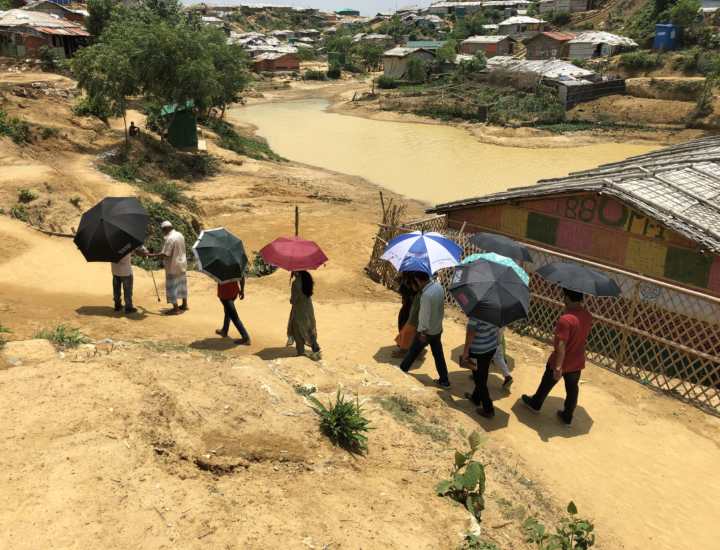
Capacity development
We support organisations and individuals to set and achieve their own objectives to strengthen inclusion capabilities over time through capacity development and learning in its many forms.
For example: In the Rohingya camps in Bangladesh, together with our local partner, the Centre for Disability in Development (CDD), we have been providing technical support to humanitarian organisations, including the International Organization for Migration (IOM). In 2019, we developed a five-day on-site capacity building module which gave IOM staff practical experience in conducting inclusive focus group discussions and accessibility assessments. We provided on-the-job technical support followed later in the year by a training-of-trainers module on inclusive humanitarian action. At the end of each training, participants developed action plans on how to make their interventions more inclusive.
Image: Staff from the International Organization for Migration undertaking a transect walk with people with disabilities living in the Rohingya refugee camps in Bangladesh to understand their perspectives, experiences and requirements, with support from IAG advisors and our local partner, CDD.
Technical support
We provide tailored input to support organisations to address inclusion within their own policies and practice. This includes tasks such as reviewing policy and programme documents and developing resources.
For example: We’ve had ongoing technical engagement with the Australian Government Department of Foreign Affairs and Trade (DFAT) since 2008. This includes managing and implementing a help desk function, allowing its staff to log support requests, enabling technical assistance and links to Organisations of Persons with Disabilities (OPDs) to be built in early and at all stages of programming. From 2008-2020 we delivered over 500 technical tasks, including advising on policies, strategies, designs, ME&L frameworks and other documents; and identifying opportunities and strategies for disability movement engagement. The help desk complements our broader capacity development with DFAT co-delivered by OPDs. Pacific Disability Forum provides oversight to our work with DFAT.
Image: One of our advisors working with Timorese colleagues on cognitive testing of the Washington Group Questions in Timor-Leste, which was part of our DFAT helpdesk support.
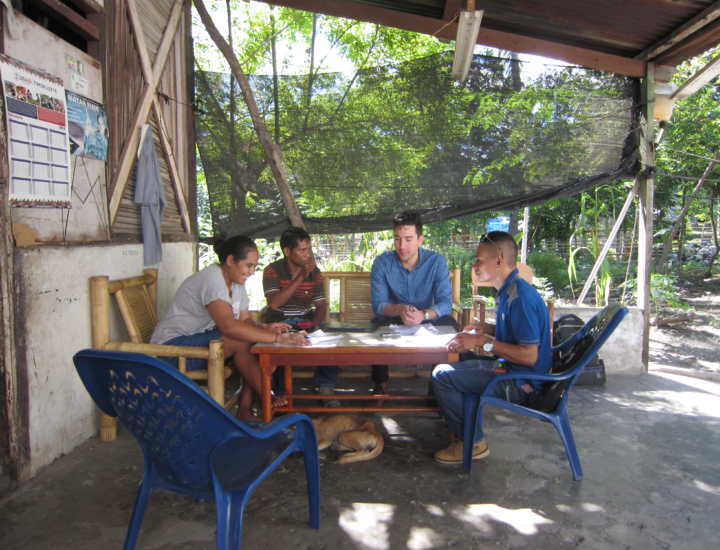
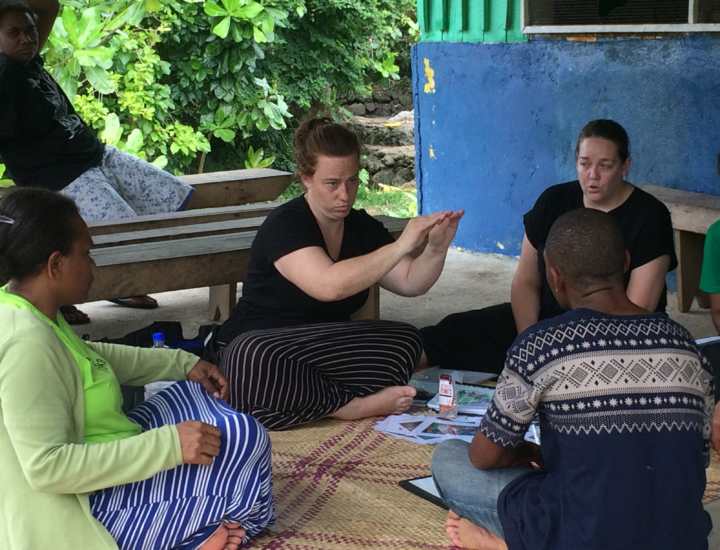
Research and evidence
We contribute to the global evidence on inclusion through action learning and participatory research, formal research in collaboration with research partners, providing input to research concepts and methodology, identifying research and evidence gaps, and providing advice on monitoring, evaluation and learning.
For example: In 2015, we partnered with the OPD Ra’es Hadomi Oan (RHTO) to provide disability advisory services to the Australian Aid Health Program in Timor-Leste. With support from our partner the Nossal Institute for Global Health, we conducted research into access to maternal and newborn health services for women with disabilities in Timor-Leste. The findings provided a compelling case for stronger investment into inclusive health in Timor-Leste and shaped future health system strengthening programming. RHTO told us the process strengthened their research skills and networks within the health system and provided them with an effective advocacy tool.
Image: An IAG advisor conducting research on the use of sign language in Vanuatu, to inform policy and programming investments on national sign language development.
Joint programming
We team with other organisations to provide inclusive programmes, including working in consortia to co-deliver programmes; supporting the engagement of OPDs as programme partners; and providing technical support and capacity development on inclusion through the life of programme.
For example: We worked within INGO consortia and the disability movement in the Pacific to implement a regional project under the Australian Humanitarian Partnership Disaster READY programme. Through this, we have supported the Pacific Disability Forum (PDF) and its member OPDs to determine their vision of disability inclusive preparedness for disaster response. This resulted in the development of the Disability Inclusive Preparedness for Response Strategy for the Pacific, which guides the engagement of PDF and its members in all DRR programming. To achieve this vision, we formed a “Triangle Team” (Inclusion Advisory Group, PDF and national OPDs) to complement each other and strengthen one another’s capacity. Together we influence the activities of the consortia members led by Plan, World Vision and Oxfam.
Image: Participants in an IAG-led training workshop on disability-inclusive water, sanitation and hygiene in Laos.
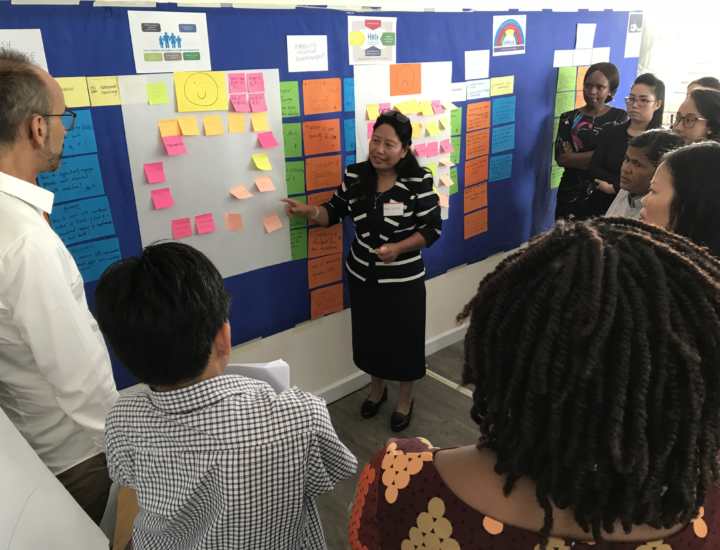
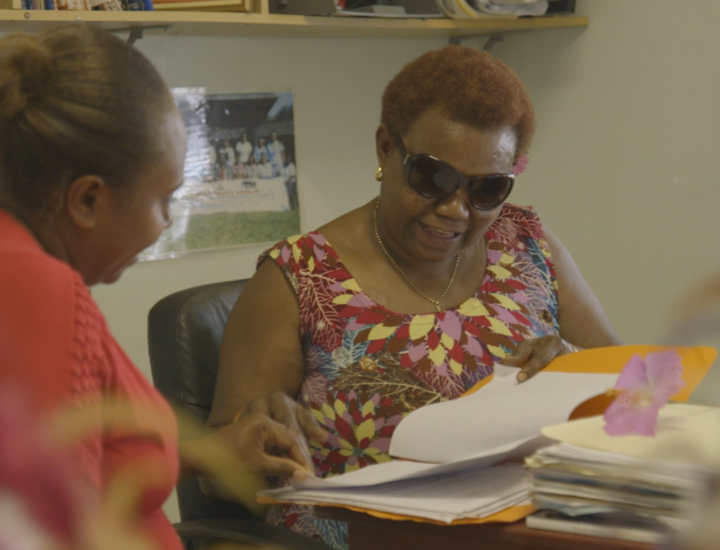
Supporting the disability movement
We provide support to Organisations of Persons with Disabilities to achieve their own agendas through strategy and technical support and capacity development. We offer this support ‘on tap not on top’, and also facilitate peer exchange.
For example: We have partnered with the Pacific Disability Forum (PDF) since 2009, guided by a MOU which sets out a shared vision and five joint objectives, including for example a focus to grow skills and influence in the DRR and humanitarian sectors. We make our staff and technical resources available upon request to support PDF as they implement their strategy. This includes: joint strategic thinking, harnessing our networks to support PDF’s agenda, supporting capacity development of PDF members, and supporting the development and finalisation of resources. We collaborate closely with our partner Centre for Inclusive Policy in our work with PDF (and other initiatives).
Image: Nellie Caleb, National Coordinator of the Vanuatu Disability Promotion and Advocacy Association.
Development of inclusion strategies
We support programmes and organisations to become more inclusive through change facilitation and action planning.
For example: In 2019, we undertook a review of disability inclusion in Tearfund UK’s and Tear Netherlands’s programming and advocacy, with a focus on highlighting best practice as well as opportunities, including strengthening engagement with OPDs. This work was commissioned to inform the development of an organisational action plan on diversity and inclusion and to provide practical adaptations to organisational systems and processes.
Image: Some of our advisors facilitating a stakeholder analysis process at a strategy workshop in Nepal.
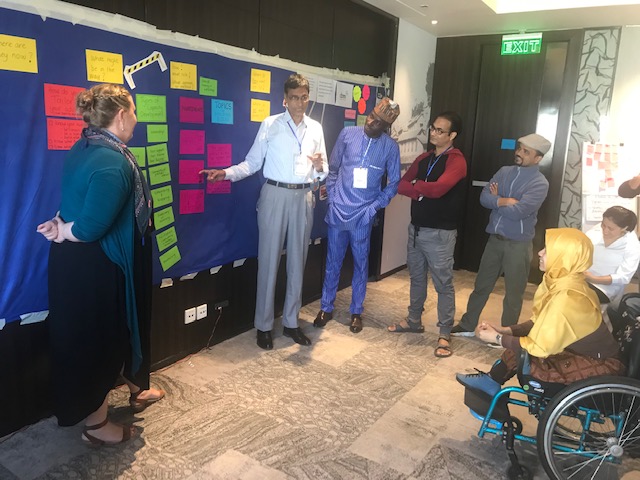
Who we work with
We have varied and diverse clients, who each bring about different kinds of impact. We provide advisory services to UN agencies, development banks, bilateral donors and national governments, who may have a broader influence on norms, policies and creating enabling environments. We also work with international NGOs, contractors, civil society organisations and other local stakeholders, who work more closely with individual people, families and communities and can bring evidence of what works on the ground.
